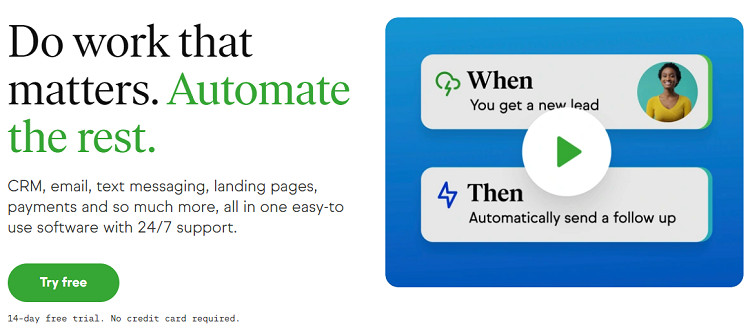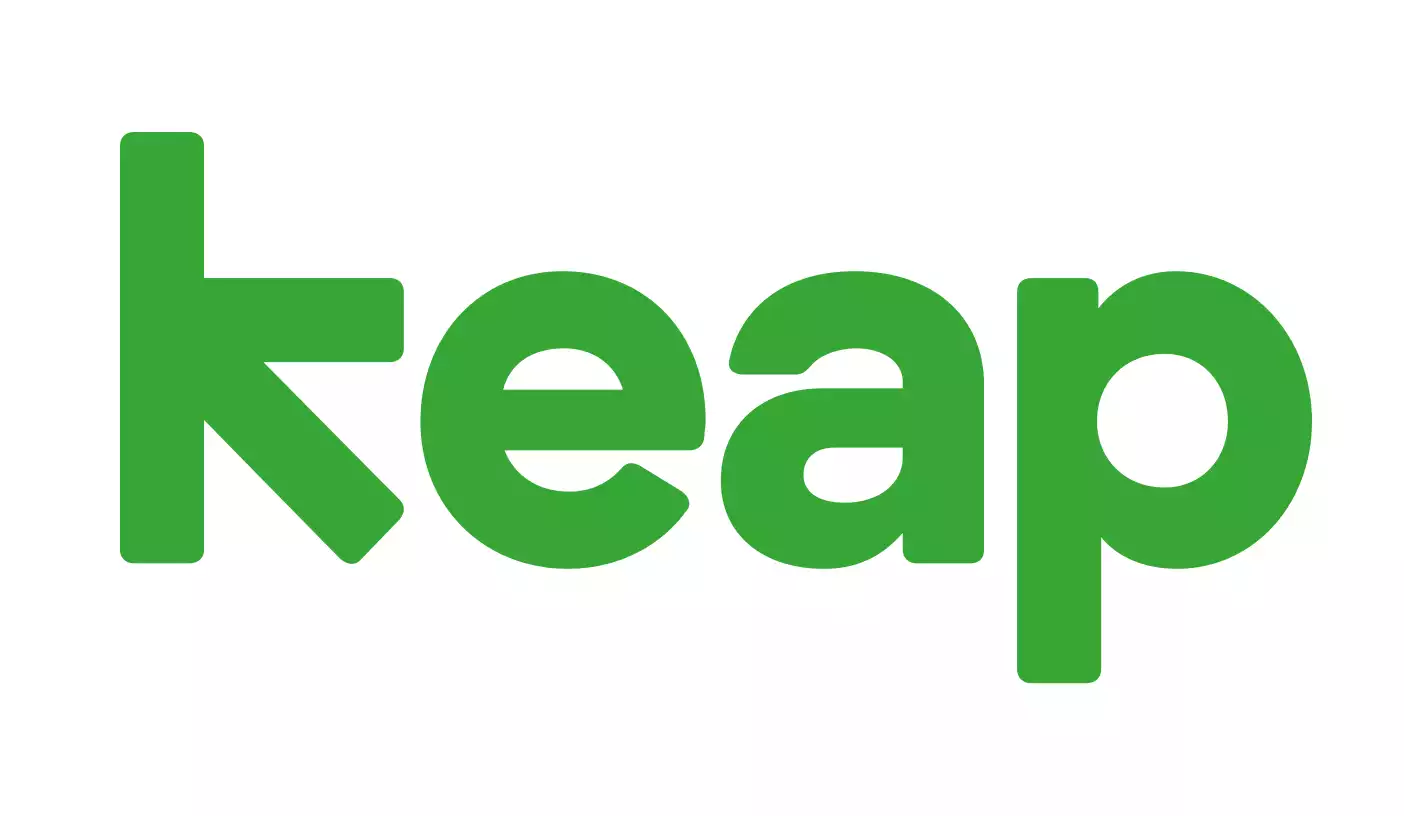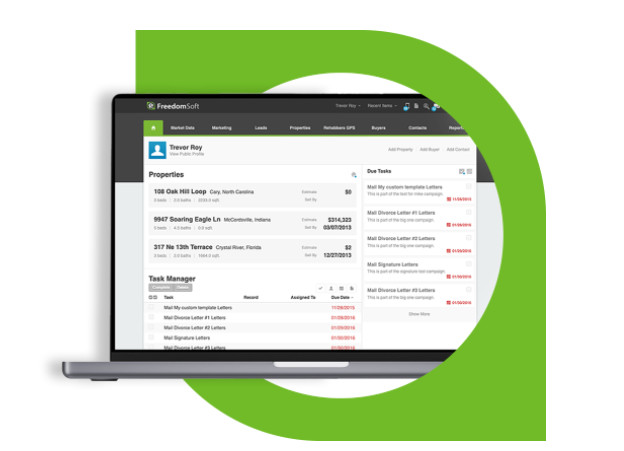- Bottom Line Up Front
- Why Would You Need a CRM for Real Estate Work?
- How Do CRMs for Real Estate Investors Work?
- Different Types of CRMs
- What Type of CRM Works Best for Real Estate Investors?
- Our Top CRM for Real Estate Investors' Recommendations
- HubSpot CRM
- FreedomSoft
- Keap
- Pipedrive
- SyndicationPro
- Salesforce
- What Criteria Did We Use to Come up With these Suggestions?
- What Should You Look for in a CRM for Real Estate Investors?
- FAQs
- Conclusion
Last Updated on April 22, 2023 by Ewen Finser
If you’re a real estate investor, then you know that managing your business can be a lot of work. And that’s exactly where a CRM comes in.
A CRM, or customer relationship management system, is a software application that helps businesses manage their interactions with current and potential customers. We’ll go through more about it in this best CRMs for real estate investors guide.
Having a good CRM can be essential to your success. This type of software will help you keep track of all of your leads and contacts in one place, allowing you to follow up with potential clients more easily and close more deals. This can be crucial for investors who are looking to stay organized, keep their deals moving forward, and essentially boost their property business.
But with so many products on the market, it can be difficult to decide which CRM is right for you. In this blog post, we will discuss what a CRM is, what specifically a CRM for real estate investors is, and what to look for in a CRM for real estate investors. We’ll also provide you with a buyer’s guide to help you choose the best CRM for your needs!
Bottom Line Up Front
The best CRMs for real estate investors are ones that offer a wide range of features, are flexible and customizable, and integrate well with other software.
Salesforce is a great option for investors who are looking for a comprehensive CRM, while Pipedrive is a good choice for those who want something more simple and user-friendly. If you want something that’s specifically for real estate, FreedomSoft is the best option.
Why Would You Need a CRM for Real Estate Work?
A CRM, or customer relationship manager, is a software program used to store and manage customer data, customer interactions, and often new leads. It allows you to keep track of all communications with customers, including emails, phone calls, meeting notes, and more.
This can be an extremely valuable tool for real estate investors because it can help them stay organized and efficient while working with clients.
How Do CRMs for Real Estate Investors Work?
CRMs for real estate investors can be specifically tailored to the needs of real estate professionals. You can most certainly run your real estate business and sales process more efficiently by using CRM software. By managing incoming requests, visualizing the sales funnel, and generating price quotations, CRM software will help you handle the end-to-end process of leasing or selling a property.
They can help you provide a more personalized service to buyers and sellers. Real estate CRM, like any other CRM, can also help organize your data effectively to assist with numerous sales and marketing issues.
They typically include features like property and contact tracking, transaction management, and marketing automation. Many also have tools specifically tailored to the property market. Additionally, they often have integrations with popular real estate websites and software programs, making it easy to keep all your data in one place.
Different Types of CRMs
So, if you’re searching for a CRM for your real estate business, you might be wondering what the different types are. There are three main types of CRMs: collaborative, analytical, and operational. Here’s a little bit about each of these:
Collaborative
A Collaborative CRM system is designed for team-based work. It allows different users to access and edit customer data simultaneously. This can be helpful for real estate investors who work with a team of agents, brokers, or contractors.
Analytical
An analytical CRM is focused on data analysis. It helps you track and understand customer trends over time. This can be valuable for real estate investors who want to measure the success of their marketing efforts.
Operational
An operational CRM is focused on day-to-day operations. It helps you manage tasks, appointments, and customer interactions. This can be helpful for real estate investors who want to stay organized and efficient.
What Type of CRM Works Best for Real Estate Investors?
So, out of these types of CRM, what is the best one for real estate investors? The answer to this question depends on your specific needs and goals. However, a collaborative CRM is often a good choice because it allows you to work with others efficiently and effectively.
Nonetheless, an operational CRM may also work for your business if your primary goal is keeping everyone on track with various property-related tasks.
Our Top CRM for Real Estate Investors’ Recommendations
So, without further ado, here are our top choices for CRM software for real estate investors:
HubSpot CRM
Hubspot is a popular CRM that offers a free version and a paid version. The paid version includes features like lead tracking, contact management, and email marketing automation. It also integrates with popular real estate websites and software programs.
As a real estate investor, you have to deal with many different types of people as a real estate investor. You’re in charge of tenants, vendors, and employees. So, you need a CRM that can handle all the different types of interactions and data you’ll have.
You can use the platform to provide live chat or chatbot assistance, online consumer forms, and a conversations inbox. You can also use it to automate your email marketing and create targeted lists of leads. This can all be extremely helpful in managing your real estate business and providing top-notch customer service.
But one of the top reasons that Hubspot CRM is a good choice for real estate investors is because it has a great free forever plan. It also has a wide range of features and integrates with popular real estate websites and software programs.
Pros
- Has a functional free forever plan
- Great range of comprehensive features
- Integrates with popular real estate websites and software programs
- Scalable, so it can grow with your business
Cons
- Paid plans can be expensive
FreedomSoft
This is a powerful, simple-to-use system, and really does it all, from lead capture and follow up to deal analysis and marketing. It also offers a wide range of features for real estate investors, including property management, contact management, transaction management, and marketing automation.
It’s one of the more affordable CRMs on the market, and it has a lot to offer real estate investors. It also integrates with popular real estate websites and software programs and focuses highly on automation. This will both save you time and help you close more deals.
FreedomSoft covers a range of features from lead generation to marketing; and from data analytics to automation. You can automate call recordings, sign documents digitally, access over 100 million worldwide properties, and auto-create, schedule, and assign tasks using their unlimited workflow triggers.
The tool also has property investor-specific features including the ability to filter for out-of-state homeowners, search nationwide property comps, generate rental and rehab analysis reports, and even manage property construction through the app.
Pros
- Offers a wide range of features specifically for real estate investors
- More affordable than some other CRMs
- Integrates with popular real estate websites and software programs
- Focuses highly on automation
Cons
- Some users find the interface to be confusing and difficult to use.
Keap
Previously known as Infusionsoft, Keap is a CRM that offers features like contact management, lead capture, email marketing, and e-commerce. It’s a great product for areas estate investors and, as well as being one of the most established real estate CRM platforms on the market, it also has one of the most comprehensive ranges of features
You can use Keap to capture leads from your website and social media, and then follow up with them using automated email marketing. You can also use it to manage your contacts, track your deals, and automate your marketing.
Keap CRM is a sales and marketing software that includes basic tools like events, integrated social media accounts, scheduling, and lead management. With automated lead capture, you’ll be able to keep on top of every lead and ensure none slip through the cracks, and as the software is accessible anywhere, you’ll always have all your data in one place.
Furthermore, they offer a 14-day free trial with no credit card required, and they integrate with a lot of popular tools such as Mailchimp and Constant Contact, so you should be able to work Keap directly into your existing workflow.
Pros
- One of the most established CRMs on the market
- Offers a comprehensive range of features
- 14-day free trial with no credit card required
- Integrates with a lot of popular tools
Cons
- Some users find the interface difficult to use
- Can be expensive for some users
Infusionsoft is better now. Keap is the new name and the system is MUCH easier to use. Fully customizable, expandable based on what you need from basic email automation to advance sales CRM and landing page builder.
Pipedrive
Pipedrive is a CRM that’s designed to help sales teams close more deals. It offers features like lead management, contact management, deal tracking, and sales automation. Pipedrive is well-known for its adaptability to customize workflow procedures to meet your business requirements. It also offers property management at all sales phases, like many of the other real estate CRMs on this list.
Pipedrive makes it much easier to track calls and email history. You can integrate your calls software and your email software (whether you use Gmail, Outlook, or another type of email provider) directly into the tool which means you’ll never have to worry about losing data or forgetting to make a call.
Pipedrive also offers a visual drag and drop sales pipeline which makes it easy to see where each deal is at and how likely it is to close. Time tracking and management become much easier with this feature, which helps you keep track of your time and manages tedious chores to help you stay organized.
Pipedrive also offers a fully-featured mobile app that enables you to access your account and analyze your data from anywhere. Plus, if security is a big concern for you, this is one of the most security-conscious CRMs for real estate investors as it has a stringent security policy and has never had a leak.
Pros
- Offers a visual drag and drop sales pipeline
- Has a fully-featured mobile app
- Integrates fully with a range of other software
- Makes tracking call and email history much simpler
- It’s a very security-conscious CRM
Cons
- Some users find it’s not as customizable as they’d like
SyndicationPro
SydicationPro is a CRM that enables real estate investors to manage their leads, contacts, and deals in one place. Like FreedoSoft, it’s specifically tailored to real estate professionals and features a range of tools that are designed to help you succeed in your real estate investments.
The most common use for SyndicationPro is to syndicate real estate investment opportunities. In reality, it’s the only CRM software that helps you nurture and recognize important investors, and then track your relationships with them.
SyndicationPro’s features include contact management, a deal room, and an investor portal. The software is much more focused on building relationships than it is on tasks and projects, however, it does have a to-do list feature that you can use to keep track of your tasks. It also allows you to build a fully customizable landing page.
Pros
- The only CRM software that helps you nurture and track relationships with important investors
- Features a deal room and an investor portal
- Has a to-do list feature to keep track of tasks
Cons
- It’s a newer CRM so doesn’t have as many features as some of the other CRMs on this list
- It has a relatively high price point
Salesforce
Arguably the most popular and well-known CRM on the market, Salesforce is a great choice for real estate investors. It offers a wide range of features, including contact management, lead capture, deal tracking, and sales automation.
This solution provides amazing flexibility, complete scalability, and the ability to entirely customize your workflow to your needs. One of the greatest pros of a tool like this is its automation features because they can help you speed up your processes and close more deals.
This coupled with marketing features can also mean that you can gather more accurate analytics and potentially uncover more leads.
Agents may utilize Salesforce to track and communicate with properties and individuals without difficulty. They can also use the software to develop marketing lists, manage their time, check the status of any client quickly, generate real estate reports, and update records remotely.
Salesforce also has a comprehensive list of integrations including a wide range of popular real estate websites and software programs. This makes it a great choice for investors who want a CRM that will integrate seamlessly with their existing workflow. Plus, it’s entirely cloud-based, and you don’t have to install anything onto your computer.
Salesforce offers a free trial so you can try it out before you commit to the paid version.
Pros
- One of the most popular CRMs on the market
- Offers a wide range of features
- Flexible and scalable for any business
- Cloud-based, so you don’t need to install anything
- Free trial available
Cons
- Can be very expensive
- Customizations often require a skilled developer or knowledge of code
What Criteria Did We Use to Come up With these Suggestions?
We used a range of criteria to come up with the solutions above including features, integrations, price, and user reviews.
When it comes to features, we looked for CRMs that offered a wide range of features that would be beneficial for real estate investors. This includes things like contact management, lead capture, deal tracking, and sales automation. We also looked at software that has specifically tailored features directly related to the real estate business.
We also looked at the integrations that each CRM offered. We wanted to make sure that the CRMs we suggested would integrate seamlessly with other software that real estate investors are likely to be using.
Another important criterion was the price. We wanted to make sure that the CRMs we suggested were affordable for real estate investors, regardless of whether you are a country-wide chain establishment or a small, family-run business.
We then considered ease of use because we know that real estate investors are often busy and don’t have a lot of time to spend learning a new CRM.
Finally, we looked at user reviews to get a better idea of what users thought of each CRM. It was important to us that the CRMs we suggested had mostly positive reviews from users.
What Should You Look for in a CRM for Real Estate Investors?
So, now that we have a better idea of what a CRM is and some of the top products available on the market, what should you look for in a CRM for real estate investors?
Some of the things you might want to consider include:
Integrations
When it comes to using your CRM system seamlessly with your existing workflow, integrations are key. You’ll want to make sure that your CRM integrates with any other software you’re using. For real estate investors, this might include things like your email marketing software, your website, and your accounting software.
Automation
Automation can help you speed up your processes and close more deals. This coupled with marketing features can also mean that you can gather more accurate analytics and potentially uncover more leads.
Ease of Use
How easy a tool is to use can make or break whether you want to actually use it. If it’s too complicated or time-consuming to learn, you’re likely to give up on it quickly. Look for a CRM that is designed with busy real estate investors in mind and that is easy to use from the get-go.
The Features each CRM Offers
As we mentioned before, things like contact management, lead capture, deal tracking, and sales automation are all important features for real estate investors.
Other real estate specific features might include revenue tracking (which is great to help track your progress and see which deals are profitable), contact management (which allows you to keep all of your contacts in one place), and marketing features such as email marketing, lead generation, and drip campaigns (which are great for making more people aware of your services).
Customer Service
With any software purchase, you’ll want to make sure that you’re getting good customer service. This is important in case you run into any problems or have any questions. Look for a CRM that offers 24/hour customer support.
Dashboards
These are vital in a CRM are great because they give you a high-level overview of your business. For real estate investors, this might include things like your pipeline, your deals, and your revenue. As such, this is a helpful feature to have.
Mobile Access
Let’s be honest, these days, 99% of the world spends one heck of a lot of time on their mobile phones. Therefore, having a CRM that is mobile-friendly is key. Mobile access allows you to work on your CRM from anywhere, whether you’re at a property showing or on the go.
Security
When it comes to security, you’ll want to make sure that your CRM is compliant with GDPR and that it offers features like two-factor authentication. This is important in order to protect both your data and your customers’ data and keep it safe.
Database, CPU, and RAM Requirements
This is important because you’ll want to make sure that your CRM can actually run on your computer. If not, you’ll need to upgrade your equipment, which can be costly.
Customization
You’ll want to make sure that you can customize your CRM to fit your specific needs. This might include things like adding custom fields, modifying the workflow, or changing the layout.
But with this, you’ll also want to look at how you can customize the software. For instance, a tool like Salesforce can be a lot more complicated to customize than a tool like Pipedrive.
Pricing
Make sure that the CRM you choose is affordable and that it offers a pricing plan that fits your budget. CRMs can range in price from $0 to well over $200 per month, so there’s definitely a wide range.
FAQs
Question: Which is the Best Real Estate CRM?
Answer: In our opinion, the best real estate CRMs are Salesforce because of its wide range of usability and customizability, and FreedomSoft because of its low price and great features that are specifically tailored for real estate investors.
Question: Is Salesforce Good for Real Estate?
Answer: Yes, Salesforce is a very versatile CRM and can be used for a variety of businesses, including real estate. The tool offers a wide range of features and is customizable to fit your specific needs.
Question: Do Real Estate Agents Use CRM?
Answer: Yes, real estate agents often use a CRM system in order to keep track of their clients, leads, and prospects. Additionally, a CRM can help with marketing and selling properties.
Question: How Much Does a Real Estate CRM Cost?
Answer: A CRM system can range from being completely free (but this usually comes with a more limited feature set) to being a rather expensive piece of software.
On average, you can expect to pay anywhere between $7 per user to well over $100 per user. As a CRM is usually calculated on a per user per month basis, if you have a lot of people in your organization, the cost of this can quickly rack up.
Conclusion
So, there you have it, our suggestions for the best CRMs for real estate investors. When it comes to choosing a CRM for your real estate business, there are a lot of factors to consider. But if you keep the points we’ve listed in mind, you should be able to find the perfect CRM for your needs.
Whilst all the products on this list are great options, our favorite CRMs for real estate investors are Salesforce and FreedomSoft. We love Salesforce because of its versatility, automation, and customization. You can do pretty much anything with this CRM.
And we love FreedomSoft because of its affordable price point and range of features that are specifically tailored for real estate investors. This makes it much easier to do property-related tasks and manage your real estate business. So, what’s the best CRM for real estate investors? Well, that really depends on your specific needs and budget. But we hope that this list has given you a good starting point in your search for the perfect CRM system.
Happy CRM hunting!











